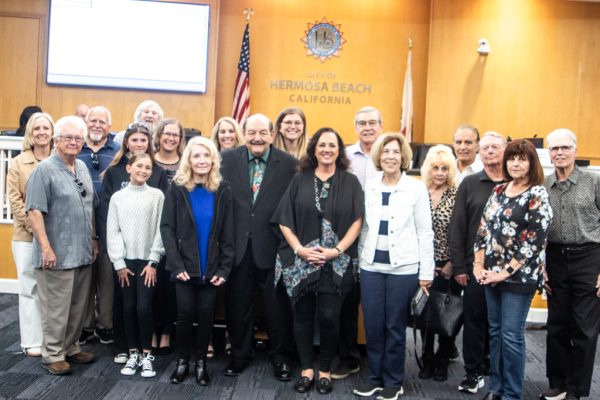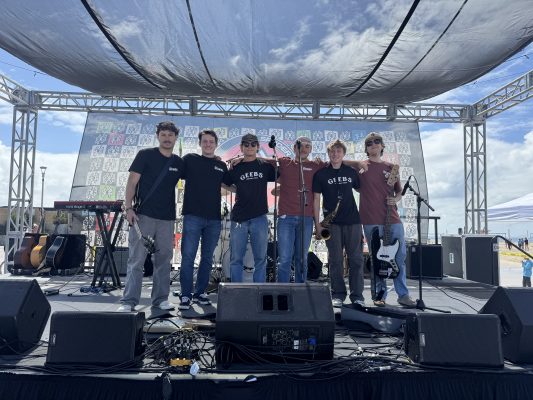
Hermosa Beach Mayor Howard Fishman trumpeted a rebounding economy and the recent settlement of a potentially bankrupting lawsuit, as he delivered the annual State of the City address to a standing room crowd thick with civic leaders.
Fishman told the assemblage at the Beach House hotel that a recent midyear budget report showed a 4 percent increase in city revenues.
“That is extremely positive,” said Fishman, wearing a leather jacket, a white shirt with surfboards and a woody on the chest, and a sunny smile.
The economic upturn was fueled in part by increases in the city’s property tax revenue, the largest single funding source, Fishman said.
“That also tells us construction is up,” he said.
Revenues also rose from the “bed tax” paid by hotel visitors, and sales tax revenue to the city increased 11 percent in the first half of the current fiscal year, Fishman said.
“That is impressive,” he said.
“People are spending money in the city,” he said.
Forty-three percent of the sales tax total was generated by “eating and drinking places,” Fishman said.
Fishman noted a sea change in the geographic realities of the sales tax, as the downtown drew even with Pacific Coast Highway as the top generating areas, each contributing 42 percent of the total.
He attributed the current year’s 13 percent increase in downtown sales tax revenue in part to a sweeping overhaul of upper Pier Avenue, which was accompanied by refurbished, rebuilt and reoccupied storefronts.
“It’s been the place to be,” he said. “People want to have a business in downtown Hermosa.”
Fishman said the settlement of the 14 year-old Macpherson Oil Company lawsuit was “the biggest thing that could have happened” in Hermosa.
A month ago Fishman was addressing reporters in a conference call, announcing the settlement, which caps the city’s potential liability at $17.5 million and calls for a citywide vote on whether to allow an oil company to slant-drill from city land to recover oil under the ocean.
Fishman said reaction to the settlement has been mixed.
“Some people don’t like that it was settled, and that’s okay. Some think it’s terrific,” Fishman said.
“I come down on the terrific side,” he said.
Fishman said the city had spent millions of dollars fighting the lawsuit, which could have cost Hermosa hundreds of millions in a judgment, and was certain to drag on further with an appeal by the losing side.
“This takes the decision out of the hands of a jury and gives it to the voters,” he said.
If Hermosa voters approve the drilling project, the city would make money on oil royalties, or pay $3.5 million if there is no oil to drill. If voters forbid the project, the city would pay $17.5 million.
Fishman expressed gratitude for officials of the E&B Natural Resources Management Corporation of Bakersfield, who bought drilling rights from Hermosa nemesis Macpherson Oil and took part in a creative three-way settlement.
“If it was not for E&B, we would have had a trial [in the lawsuit] next week,” he said.
“The best thing is this lawsuit is over,” Fishman said. “It’s over, it’s done.”
By contrast, a more subdued audience received last year’s State of the City address with a stiff upper lip, as Councilman Peter Tucker, who then held Hermosa’s rotating mayoralty, set the stage for the trial by saying that city officials “have a great defense for our case.”
Fishman also trumpeted a revamped city fee schedule, an aggressive city ban on some outdoor smoking, a ban on restaurants’ use of polystyrene takeout containers, and a partnership with the nonprofit Vitality Cities project that encourages healthy habits for residents.










